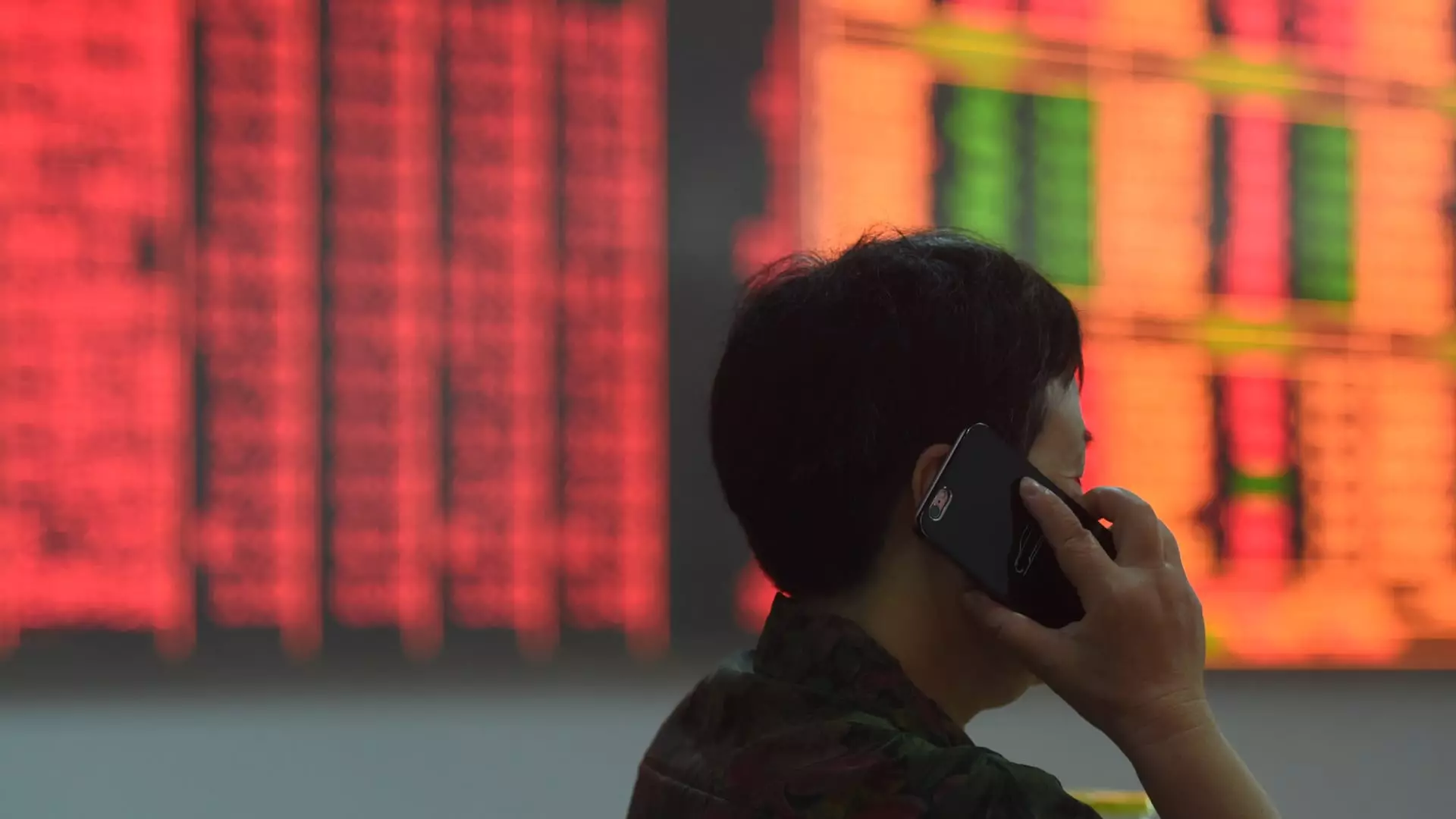China’s economic landscape is currently embroiled in multifaceted challenges that transcend mere policy announcements. Recent developments have underscored the importance of sentiment in market dynamics—highlighted by a significant rally in the Shanghai Composite Index, which surged to a three-month peak following a Politburo meeting led by President Xi Jinping. This meeting addressed China’s struggling real estate sector and signified a government commitment to revitalizing fiscal and monetary policies. While the discussions brought forth an optimistic tone, analysts caution that the high-level meeting provided limited actionable specifics, thereby raising questions about the long-term effectiveness of the approaches being piloted.
Analysts like Ting Lu, Nomura’s chief economist, emphasize the limited outcomes stemming from previous piecemeal strategies deployed by Beijing. They argue that sentiment-driven approaches may yield temporary boosts, but without comprehensive, structured policies to tackle the underlying economic malaise, these efforts risk falling short of their intended objectives. The reliance on a superficial ‘shock and awe’ strategy, while momentarily uplifting, brings to the forefront the stark reality: China’s economy is in need of substantial and effective reform measures rather than ephemeral boosts.
Despite the buzz surrounding policy shifts, the crux of China’s economic struggle lies in its real estate sector—which is grappling with a fourth consecutive year of contraction. With retail sales barely nudging above 2% and industrial profits stagnating, it’s evident that China is facing a prolonged economic slowdown. While the recent interest rate cuts may seem encouraging, their efficacy is questioned by experts who argue that more cohesive actions are needed to latch onto market momentum.
Paul Christopher, Wells Fargo’s head of global investment strategy, articulated a sentiment echoed by many in the investment community, indicating that while the government’s intentions are commendable, tangible effects on consumer confidence remain elusive. Consumers continue to shy away from borrowing, mindful of the broader economic uncertainties looming over household budgets. The impact of these interest rate cuts may simply not suffice in reversing the psychological barriers that inhibit spending and investment.
In attempts to reignite economic vigor, the People’s Bank of China has pursued a strategy of lowering interest rates, coupled with plans to ease rates for existing mortgage holders. Nevertheless, many investment institutions view these measures as insufficient for stimulating a recovery in consumer confidence. This sentiment is highlighted by a recent survey from the China Beige Book, which revealed a notable decline in corporate borrowing activity, notwithstanding the historically low costs associated with borrowing funds.
Moreover, the anticipated stimulus measures, while welcomed by many, have yet to be meticulously detailed or implemented. Analysts warn that without a coherent and strategic approach, hastily designed stimulus programs may have little to no impactful outcome, potentially resulting in further stagnation.
Despite the cautious atmosphere, there’s an interesting pull creating a dichotomy in investor sentiment. Increased activity in the Chinese stock market suggests an underlying optimism among investors, as the CSI 300 index looks to make significant gains. Influential figures like hedge fund billionaire David Tepper have publicly acknowledged their bullish stance on Chinese equities after the recent policy shifts, indicating a potential turning point in sentiment.
However, a stark disparity exists between momentary market movements and the broader economic realities faced by the nation. The complexities of China’s capital markets and the lingering apprehensions regarding the viability of long-term economic policy require careful navigation. Bruce Liu, CEO of Esoterica Capital, has noted the importance of reestablishing investor trust in China’s financial systems, emphasizing that a well-functioning capital market is essential for sustainable growth.
As China navigates through these turbulent economic waters, the imperative remains clear: substantive, well-thought-out policies are critical for addressing the deep-seated issues within its economy. While recent policy signals have injected a measure of optimism into the markets, it is crucial for policymakers to translate this momentum into concrete reforms that not only stabilize the immediate economic landscape but also lay a robust foundation for future growth.
China’s trajectory will undoubtedly depend on its ability to harmonize market sentiment with actionable strategies that foster genuine economic resilience. The next steps taken by China’s policymakers will reveal whether this moment of optimism will pave the way for a sustainable recovery or whether it merely serves as a temporary respite. In the context of global economic dynamics and the increasingly interconnected nature of financial markets, the world will be closely observing how these developments unfold.

